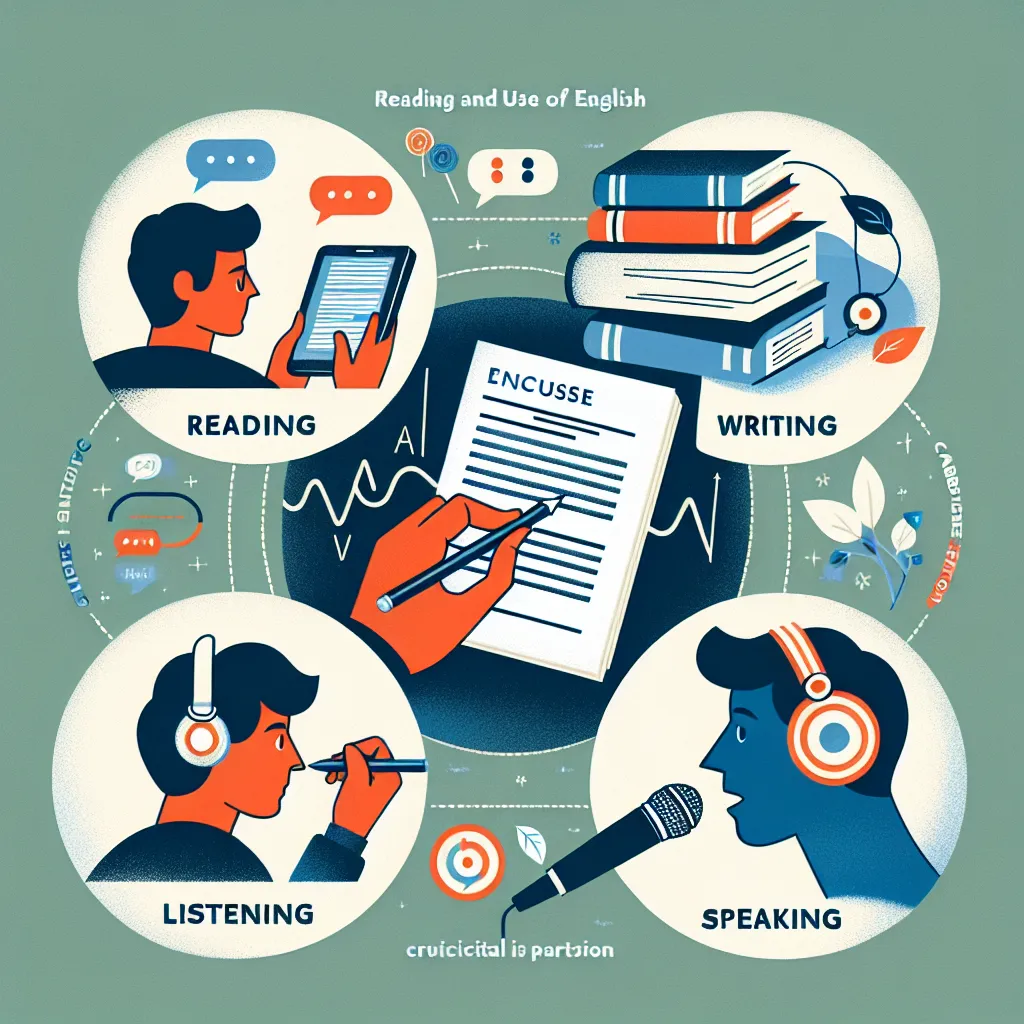For many students preparing for Cambridge exams, one question often arises: “What Is The Most Difficult Section Of The Cambridge Test?” Understanding the challenges of each section can help you focus your preparation efforts and improve your chances of success. In this comprehensive guide, we’ll explore the various components of Cambridge exams and identify which sections tend to be the most challenging for test-takers.
Understanding the Cambridge Exam Structure
Before we dive into the most difficult sections, let’s briefly review the structure of Cambridge exams. Most Cambridge tests, such as the B2 First (FCE), C1 Advanced (CAE), and C2 Proficiency (CPE), consist of four main papers:
- Reading and Use of English
- Writing
- Listening
- Speaking
Each of these papers assesses different language skills and presents unique challenges to test-takers.
 Cambridge Exam Structure
Cambridge Exam Structure
The Most Challenging Section: Writing
While difficulty can vary depending on individual strengths and weaknesses, many students and teachers agree that the Writing section is often the most challenging part of Cambridge exams. Here’s why:
Time Pressure and Task Complexity
In the Writing paper, candidates must complete two tasks within a limited time frame (usually 80-90 minutes). This requires not only strong language skills but also the ability to plan, organize, and execute well-structured essays under pressure.
High Expectations for Language Accuracy
The writing section demands a high level of language accuracy. Examiners assess your use of grammar, vocabulary, spelling, and punctuation. Even small errors can impact your score significantly.
Diverse Writing Styles
Cambridge exams often require candidates to write in different styles, such as formal letters, reports, reviews, or argumentative essays. Adapting to various writing formats can be challenging for many test-takers.
Creativity and Critical Thinking
Besides language skills, the Writing paper also tests your ability to generate ideas, present arguments, and think critically about complex topics. This combination of linguistic and cognitive demands makes it particularly challenging.
Other Challenging Sections
While Writing is often considered the most difficult, other sections can also pose significant challenges:
Reading and Use of English
This section combines reading comprehension with grammar and vocabulary tasks. Many students find the following aspects challenging:
- Time management across multiple tasks
- Advanced vocabulary in texts
- Tricky grammar structures in cloze tests
Listening
The Listening paper can be difficult due to:
- Various accents and speech speeds
- Distractors designed to mislead candidates
- The need to multitask (listening, reading questions, and writing answers simultaneously)
Speaking
While some students excel in speaking, others find it challenging because:
- It requires spontaneous language production
- Candidates must interact with a partner and the examiner
- Topics can be unpredictable and sometimes abstract
Strategies to Overcome Challenges
Regardless of which section you find most difficult, here are some strategies to improve your performance:
-
Practice regularly: Consistent practice is key to improving in all areas of the exam.
-
Focus on weak areas: Identify your weaknesses and dedicate extra time to improving them.
-
Use authentic materials: Expose yourself to real-life English through news articles, podcasts, and native speaker conversations.
-
Time management: Practice completing tasks within the allotted time for each section.
-
Seek feedback: Work with a teacher or study group to get constructive feedback on your performance.
-
Familiarize yourself with exam formats: Understanding the structure and requirements of each section can boost your confidence.
 Cambridge Exam Preparation
Cambridge Exam Preparation
Conclusion
While the Writing section is often considered the most challenging part of Cambridge exams, the difficulty can vary from person to person. By understanding the unique demands of each section and implementing targeted preparation strategies, you can improve your performance across all areas of the test.
Remember, success in Cambridge exams comes from consistent practice, a solid understanding of English grammar and vocabulary, and the ability to apply your language skills in various contexts. Focus on your weaknesses, but don’t neglect your strengths. With dedication and the right approach, you can overcome the challenges of any section and achieve your desired results.
Are you preparing for a Cambridge exam? Which section do you find most challenging? Share your experiences and tips in the comments below, and don’t forget to check out our other articles on Cambridge exam preparation strategies for more helpful advice!




